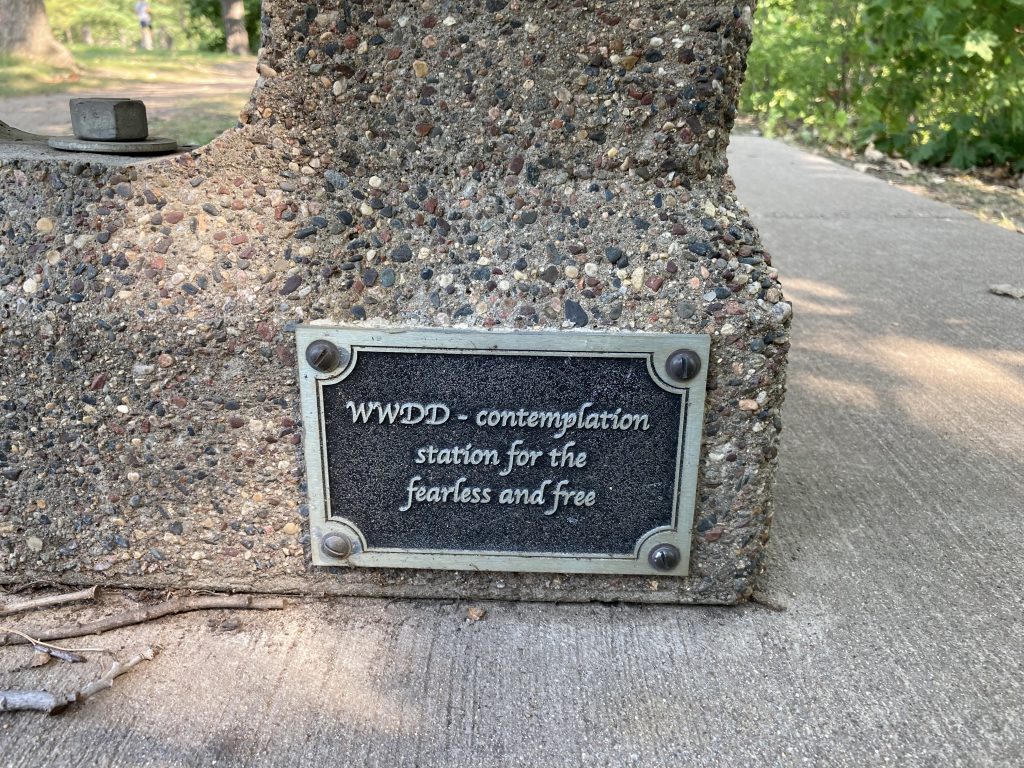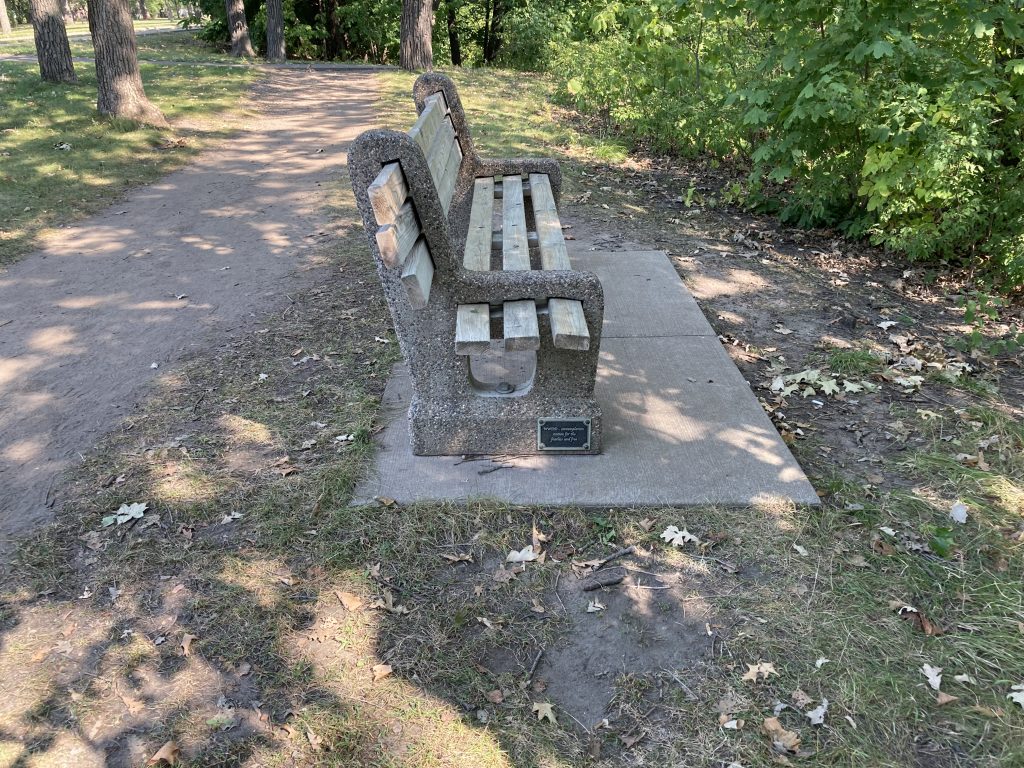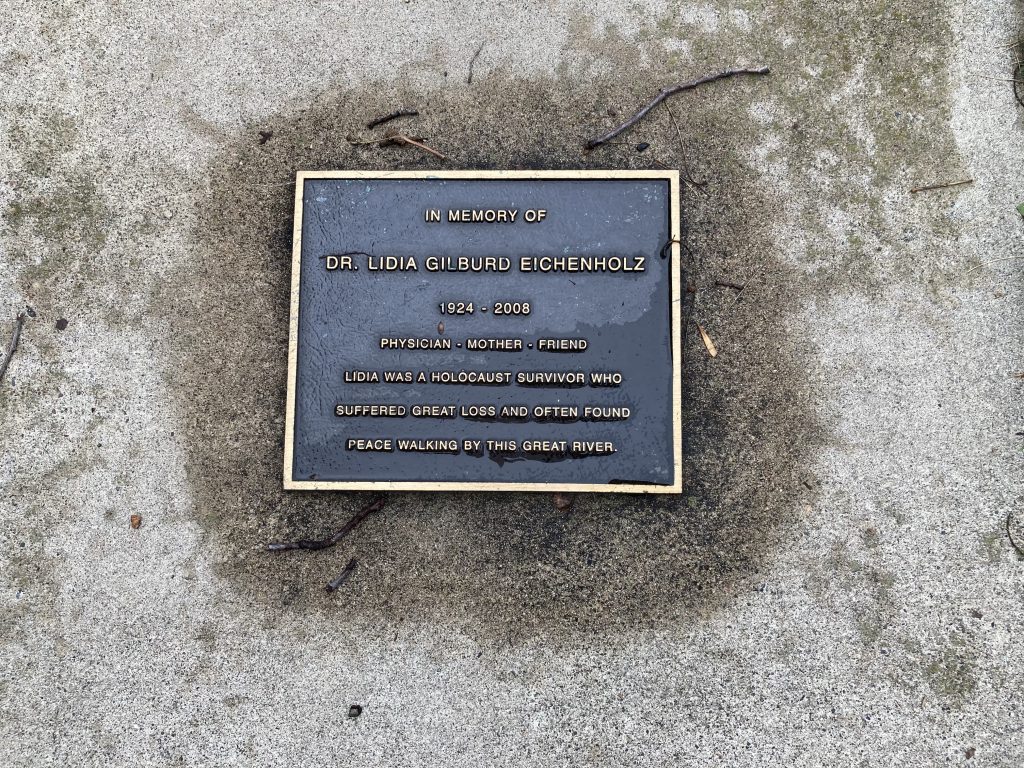3 miles
marshall loop
53 degrees
Perfect running weather! Cooler, calmer, sunny. Ran through the neighborhood, over the lake street bridge, up marshall, across Cretin, then down the east river road. As I entered the river road, a never-ending line of bikes. 50? 100? They weren’t tightly packed, like in a peleton, just stretched out all the way down the hill.
As I ran, I thought about my latest poem. I’m still trying to find the right words to express why I sometimes like punching waves during open swim. At some point during the run, I came up with some lines — something about a wave crashing over my head, being emptied of air, my thoughts shattered then scattered. (emptied of air, the thoughts knocked out of me.) These lines about thoughts being shattered got me thinking about the pure physicality of swimming straight into the waves and how I’m always trying to find ways to stop thinking and theorizing and worrying. When I was done with my run, I recorded some thoughts:
When I got home, I thought more about the last bit of my recording, when I talked about swimming without thinking, knowing innately how best to stroke, and I wrote in by Plague Notebook: doing, not being. Pure verb or all verb or (just?) Verb. I want to bring in this idea of becoming verb somewhere in the poem.
I think my love of punching water has something to do with reconciling, or navigating, the split between mind and body, which is something I’ve thought about (and lived) throughout my life. How to be both a mind and a body, finding ways to rethink the relationship between them.
Here are 2 related passages from Alice Oswald in her Between the Covers interview that are inspiring me right now:
I sometimes wonder whether I’m a very keen swimmer, and whether for me, poetry is equivalent to swimming. I’ve often noticed when I swim, the strangeness of the way the body literally turns into a fish, but the head remains human and rather cold, and looking around at this strange flat reflective surface. I’m often very piercingly aware of the difference between my head and my body when I’m swimming because I’m not necessarily someone who goes underwater, I love swimming along the surface of rivers. Perhaps, my poems do feel a need to convey that continued separation of the head remaining human and the body becoming animal, or plant, or mineral, or whatever it can be. In some way, I suppose I’m trying to find rhythms that will heal that divide.
I think that’s exactly it, that we seem to exist as bodies and minds. That’s always slightly troubled me that I can’t quite make them be the same thing. I always have two narratives going on and it’s extraordinary the way the mind is floating around seemingly quite untethered and yet the body has all these laws like gravity, and limit, and size, and hunger, that it’s obeying. How those two interact and how they come to define what it is to be human is again—I’m wary of using the verb think because I don’t think poetry is necessarily about thinking—but it gets hold of questions, and reveals them as questions, and then reveals what’s underneath them, and then what’s underneath that. I suppose each book tries to peel away a layer of that problem and present it again.
Between the Covers interview with Alice Oswald


